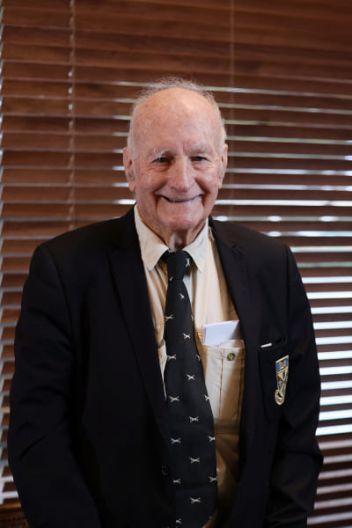
Shan Shujuan (front row, second from left), who is from Myanmar, and her family used the space behind their restaurant to open a Muslim school, conveying culture as well as offering good food. (courtesy of NIA)
Not all dreams are especially ambitious, but having the courage to make your dream a reality is a great accomplishment. Since it was launched by the National Immigration Agency in 2015, the “Dream-Building Program for New Immigrants and Their Children” has so far benefited more than 250 people.
Taiwan is a diverse, welcoming country, with a friendly atmosphere in which people from all over can grow up happily, confidently contribute to society, and shine with the light of wellbeing.
Heartfelt wishes
“In fact, they don’t ask for much, but when their dreams do come true, their joy and emotion are unforgettable,” says Lee Ming-fang, senior executive officer in the Immigration Affairs Division of the National Immigration Agency (NIA). Flipping through a book of achievements of the first year of the Dream-Building Program for New Immigrants and Their Children, Lee picks out the story of Huang Zhiyang, the son of an immigrant mother, who wanted to study taekwondo. Funding from the program not only covered tuition and equipment for his taekwondo class, but also fulfilled another wish of his: to buy a washing machine for his mother. When the NIA delivered the washing machine, decorated with a colorful ribbon, Huang’s mother was moved to tears.
Photographs of a mother and her children embracing on a beach testify to another touching story. “Through the Dream-Building Program, a broken circle was restored.” Thanks to her daughter’s devotion, Zheng Chunxing, who originally comes from Hainan Island, was able to realize her dream of having professional wedding photographs taken with her husband, who by then was seriously ill. Although he passed away before the photo shoots were completed, the beautiful memories and precious photographs provide some solace to help her face the anguish of widowhood. If not for the timely funding from the program, Zheng would have been left with lifelong regrets.

Linda Tjindiawati, a native of Indonesia, is a language teacher at several schools, and has long worked as a volunteer at the National Immigration Agency, helping out her compatriots.
Respect and understanding
“Being tolerant and accepting is not enough. We should give immigrants respect and understanding.” The Immigration Affairs Division, which has long been on the front lines of giving guidance and care to immigrants, expects its staff to adopt an appreciative and attentive perspective in order to overturn stereotypes that citizens hold about immigrants.
“In fact, quite a few immigrants are highly educated.” Chen Aimei, who has been teaching Indonesian and Malaysian at schools in Hsinchu since the beginning of the “New Immigrants Torch Program” in 2012, was doing graduate studies in Hakka culture when she came up with the idea of using a board game to teach people about Southeast-Asian cultures and promote multicultural exchange. Her game, which draws on the traditional Malay game of congkak, comes in the languages of five countries (Malaysia, Indonesia, Vietnam, Myanmar, and the Philippines) as well as an edition in Chinese.
Linda Tjindiawati, an Indonesian woman who married into a Taiwanese family after studying business administration at graduate school in the UK, works as a language teacher in a number of schools. Over the past 17 years, she has fallen in love with Taiwan’s enchanting scenery. Inspired by director Chi Po-lin’s documentary Beyond Beauty: Taiwan from Above, she successfully applied for funding to use aerial filming to record Taiwan’s charm. “I hope that Taiwan can raise its profile around the world.” Tjindiawati, who has long considered Taiwan her second homeland, wanted to proudly share Taiwan’s beauty with friends and family back in Indonesia.
Creative proposals
The Dream-Building Program originally had two categories, one for individuals and one for families. But because of the diversity of proposals, in the sixth year the program was broadened and energized by adding a new category for social welfare activities. “During the three months when the program is running, we stay in continual contact with applicants to find out whether they have run into any difficulties, or we can provide any assistance.” Even after the program is completed, the NIA continues to follow up on participants’ progress.
“Over the years, the biggest change in applicants’ profiles has been a shift from disadvantaged people receiving help to people giving back to society,” says Lee Ming-fang, who has been deeply impressed by this subtle evolution. Jiang Meng, a woman from mainland China who married into a Taiwanese family, proposed a project to help the elderly. The idea was sparked after her father-in-law entered a nursing home. Free of charge, she leads elderly people in exercising and teaches them handicrafts, helping them stay healthy by staying physically and mentally active. She says: “When I see the smiles on the faces of the elders who come to me, I feel I’m doing something good.”

Wu Zhennan, Zhang Junhao, Huang Baoyun, Liu Yunyun and Yang Weiguang, all natives of Malaysia, have lived and worked in Taiwan for over 20 years. Their “Southern Rhythms Hand Drum Troupe” stages benefit performances to share the culture of their homeland.
A sense of happiness
“Applicants to the Dream-Building Program have so far come from 16 countries. And it’s not only first-generation immigrants that we’re concerned about. We are now extending our reach to their children and families.” The idea is to enable the children of immigrants, who already number more than 430,000, to leverage the advantages of diversity based on their dual cultural backgrounds.
Lin Xiaoting, whose mother is from Indonesia, is fascinated with traditional Balinese dance. She used the funding she received from the program to buy traditional attire and accessories, which she has worn at countless social welfare activities to convey the rich culture of Indonesia. Meina, whose mother is from Vietnam, and Liao Jianhao, whose mother comes from the Philippines, have both used writing as a way to emerge from feelings of loneliness and abandonment, and to rediscover themselves. Huang Xiaoyun, whose mother hails from Vietnam, made an animated video and illustrated book entitled Believe in Yourself, showing her confidence to set about changing the world.
The culinary arts are an effective way to quickly bring people closer together. Shan Shujuan, from Myanmar, not only interacts with people through cuisine from her homeland, she has also gotten her son involved and opened a Muslim school to help Taiwanese get an in-depth understanding of Islamic culture. Su Lilian, who hails from Indonesia, cultivates vanilla and has drawn on memories from her childhood to bring the flavors of the land of her birth to Taiwan.
“We have statistical evidence that happiness is steadily increasing.” There is abundant information on the NIA website showing the government’s wide-ranging efforts to care for immigrants’ wellbeing.
In recent years, awardees from the Dream-Building Program have become members of the governing committee of the New Immigrant Development Fund, speaking out on behalf of immigrants. Over the past six years, each and every project has been writing the true story of how immigrants from all over the globe are courageously making their dreams a reality in Taiwan and confidently taking their lives in new directions.











